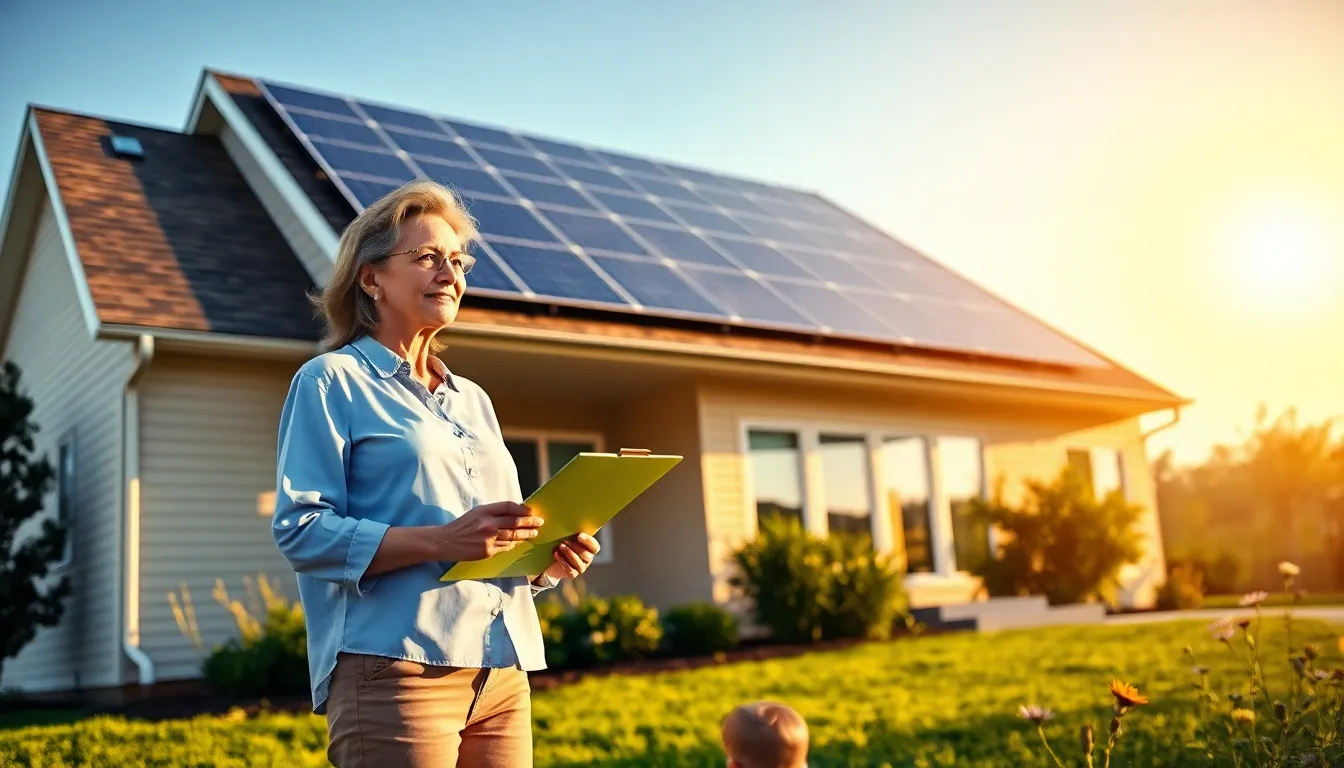Many homeowners are exploring solar energy as a sustainable solution for reducing their environmental footprint and cutting down on energy costs. But, navigating the world of solar home financing can be daunting. This article delves into the various financing options available, their benefits, and the impact on property value and sustainability, providing essential insights for anyone considering a solar installation.
Table of Contents
ToggleUnderstanding Solar Home Financing Options

Financing solar panels can seem complicated, but understanding the options simplifies the process. Homeowners can benefit from various kinds of financing tailored to match their financial situations.
Types of Financing for Solar Homes
There are three primary types of financing options available for solar home installations: cash purchases, solar loans, and leases.
- Cash Purchase: Buying solar panels outright allows homeowners to eliminate financing costs entirely. This option maximizes long-term savings but requires significant upfront capital.
- Solar Loans: These can be secured or unsecured loans that cover the cost of the solar installation. They typically have lower interest rates compared to credit cards, making them a popular choice.
- Leases: Solar leasing allows homeowners to pay for the solar energy produced rather than the equipment itself. While there’s no upfront cost, monthly payments may limit the potential long-term savings.
Tax Incentives and Rebates for Solar Installation
The federal government, along with many states, offers substantial tax incentives and rebates for solar installations. For instance, the Solar Investment Tax Credit (ITC) allows homeowners to deduct a significant percentage of the cost of solar systems from their federal taxes. Local rebates can also decrease the initial financial burden, making solar more accessible.
The Role of Solar Loans and Leases
Solar loans and leases play crucial roles in making solar energy an option for many. Loans can often be repaid through energy savings, making them affordable in the long run. Leases, on the other hand, offer the advantage of minimal initial investment, allowing homeowners to enjoy solar benefits without the full financial commitment upfront.
Benefits of Solar Home Financing
Investing in solar energy has numerous advantages, financially and environmentally. Understanding these benefits can motivate individuals to pursue solar financing when considering this renewable energy source.
Long-Term Savings with Solar Energy
The most prominent benefit of going solar is the potential for long-term savings on energy bills. With rising energy costs, locking in a fixed energy rate through solar can lead to substantial savings over time. Also, homeowners may see a return on investment that exceeds typical investment vehicles.
Increasing Property Value with Solar Installation
Homes equipped with solar systems can see an increase in property value. Various studies indicate that homes with solar installations command higher sale prices than their non-solar counterparts. This increase is largely attributed to the energy savings potential and the growing public interest in sustainable living.
Environmental Impact and Sustainability
Transitioning to solar energy has positive implications for the environment and is a significant step toward sustainability.
How Solar Homes Contribute to Renewable Energy Goals
Solar homes play a vital role in achieving local and global renewable energy goals. By harnessing the sun’s energy, they reduce dependence on fossil fuels and lower greenhouse gas emissions. This shift not only contributes to cleaner air and water but also supports the global movement toward sustainable living.
Community and Government Support for Solar Initiatives
Support for solar initiatives is essential to encourage more homeowners to adopt this renewable energy source.
Resources for Homeowners Considering Solar Financing
Various organizations and government programs offer resources to help homeowners navigate solar financing options. Websites like the Database of State Incentives for Renewables & Efficiency (DSIRE) provide comprehensive information on available incentives. Also, community solar programs and local workshops can equip homeowners with the knowledge to make informed decisions.
Choosing the Right Financing Plan for Your Home
Selecting the ideal financing plan for a solar installation can significantly influence both immediate and long-term outcomes. Homeowners should assess their financial situation, energy needs, and how long they plan to stay in their home. Consulting with solar finance experts can provide tailored advice, helping to identify the most viable options, whether it be traditional loans, leases, or cash purchases.
Conclusion
To conclude, navigating solar home financing does not have to be overwhelming. With a variety of financing options available, including loans, leases, and significant tax incentives, homeowners are increasingly able to make sustainable energy choices. Investing in solar not only fosters long-term savings and property value enhancement but also contributes to a healthier planet. As community support and governmental incentives grow, the move towards solar energy becomes even more attractive.




